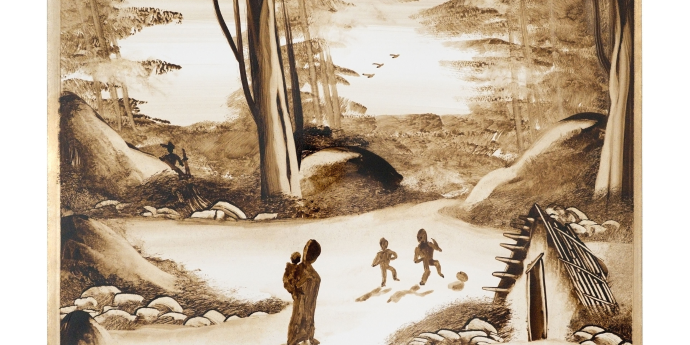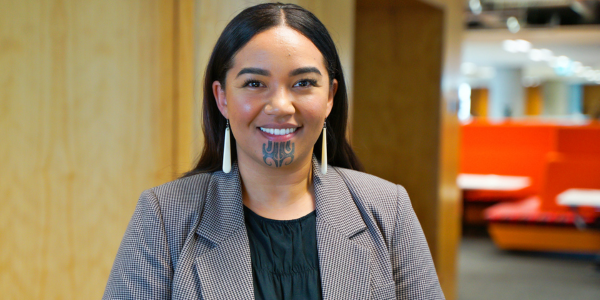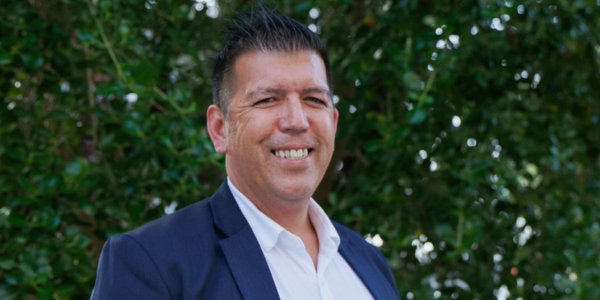The Economic Power of Gender Equality
Reasearch shows that diversity and equal roles for women delivers better results for people, for the planet and for profits.
Incorporating the Māori worldview into boards and businesses needs to be authentic, people driven and begin with hearts and minds.

Traditional thinking at the board table has seen a major shift in recent years and moved beyond the financial, with a multitude of external and cultural factors impacting decisions. Social issues, technology, climate, wellbeing, and diversity and inclusion are now playing increasingly significant roles.
New Zealand’s acknowledgement of its biculturalism and Te Tiriti o Waitangi – the Treaty of Waitangi is also integral for boards to consider as part of their duties. Many organisations across Aotearoa have begun upskilling their staff in te reo Māori, with some adopting te ao Māori into their organisational strategy. The question is: what do businesses stand to lose if they don’t?
ASB has linked with New Zealand artist Marcus Winter, aka ‘The Sandman’, to “start a conversation with directors about Māori governance and build cultural capability”. Winter, known for telling stories with his intricate sand art creations, produced a number of works at the IoD’s Leadership Conference in May, inspired by themes such as the Māori economy and leadership. His artistic passion stems from his Māori roots and the desire to promote and preserve Māori culture on an international scale.
With an increasing emphasis on stakeholder engagement, directors on all types of boards need to be cognisant of the changes in the landscape to ensure they are meeting the needs of their customers.
But while seeing through a ‘cultural lens’ might be a stretch for some directors, the reality is te ao Māori aligns more closely to current global thinking and governance than people might realise, with benefits to firms’ financial resilience, reputation and more.
The transition to thinking about ‘people and the planet’ is now part of director duties encompassed under ESG (environmental, social and governance). Ignoring the shifting tides of major global issues that also impact Aotearoa’s supply chain would be neglectful of boards whose role it is to make decisions for the best interests of the companies they serve.
Krissi Holtz and Anthony Ririnui outline the importance of te ao Māori, a holistic perspective on the world where people, the environment and community are at the heart. They share how the Māori worldview can be adopted by boards and incorporated into businesses, but they warn there is a need to tread carefully.

Krissi Holtz
“This kind of broader picture thinking is not about profit. This is about people and the planet, and these ideas of whānau and environment are fundamental to Māori culture and the Māori worldview,” says Holtz, ASB Executive Manager – Kaupapa Māori.
The current shift in thinking coincides seamlessly with te ao Māori. Holtz sees this as an important opportunity for businesses to address global issues.
New Zealand businesses have the advantage of being able to draw on an established knowledge base that has existed for centuries. Holtz says directors can lean into this but need to take time to do it properly for the outcomes to be successful and, most importantly, authentic.
“We’re not talking about just purely operational change, which is really common to switch into when you’re in business mode. Instead, you need to go slow to go fast, but you need to do it right,” Holtz says.
This is transformational change, according to Holtz, “which needs to be authentic, people driven and begin with people’s hearts and minds. This is when the magic happens.”

Anthony Ririnui
Ririnui, ASB Kaihautu Māori – Te Waka Whaihua, agrees: “There is also some intergenerational thinking that is going on right now. If we talk about people and the planet, it’s about making decisions that are values-based.”
In many boardrooms, there may be tension between old and new thinking: a push and pull of ‘this is how we’ve always done things’, versus a new approach to decisions that are now informed by external environmental and social conditions.
“We are in a unique position in Aotearoa because we have some guidance with Te Tiriti o Waitangi in terms of what a good partner looks like . . . we have these guiding principles as part of our Māori worldview,” Ririnui says.
“We’re in this interesting period as a nation of understanding our own history as a country. So it’s really important for us to lean into some of the uncomfortable discussions about how our nation was built.”
Holtz says incorporating the Māori worldview can help businesses represent themselves uniquely on the world stage.
“We’re in this interesting period as a nation of understanding our own history as a country. So, it’s really important for us to lean into some of the uncomfortable discussions about how our nation was built,” she says.
But first, a shift in mindset must happen before applying key decisions across an organisation. This is important in order to avoid what Holtz refers to as, “Pai washing” or “Māori washing”.
Just as greenwashing is used to ‘cover up’ or market sustainable values that may not be happening beneath the surface, Pai washing can have negative impacts on businesses.
“That’s where we have to be really careful because it’s easy for organisations to take one element of the Māori world, such as using te reo Māori in communications, which is important, but then not integrating other culturally important factors such as values, community connection and whānau and inclusivity. There needs to be a holistic view to do this right,” she says.
The caution around moving too quickly can create a workplace culture that lacks authenticity, and while Holtz sees revitalising and normalising te reo Māori as a positive shift, she says a strategy is needed to ensure cultural elements are embedded through a gradual process with a longer term vision.
This will require boards to be mindful about how they implement their strategy in a meaningful way.
“We have funded a number of Māori organisations who have also been recipients of government funding for social housing outcomes – these projects are important for a bank.”
“Directors need to be really cognisant of outlining what steps they need to take to get there, so they can show they are being authentic, and not just taking elements of the Māori worldview because it looks good and it’s going to bring profits. Boards need to make sure they’re implementing initiatives to build really great outcomes for Māori and Māori communities and customers, but ultimately, for Aotearoa as a whole,” Holtz says.
Ririnui’s role is external facing, and he says climate and environmental issues are often seen as a corporate compliance issue. He adds it is also important for businesses to address social factors as part of the bigger picture.
Many of ASB’s initiatives are driven by feedback. The company supports community projects, including financial inclusion programmes and financial literacy for school-age children. It also supports community housing.
“We have funded a number of Māori organisations who have also been recipients of government funding for social housing outcomes – these projects are important for a bank,” Ririnui says.
For bigger corporate entities, he says social responsibility and engagement is necessary and important, including supporting Māori clients. Again, that comes back to te ao Māori bringing everything into the bigger picture to create success and wellbeing.
For those organisations struggling to understand the benefits of integrating te ao Māori practices, there are plenty of positive outcomes. According to Holtz, it can build a sense of pride and belonging in an organisation, and this is reinforced through the courage needed to create change.
“Directors will see their businesses and the people within the organisation thrive. We all make up the five million or so people in Aotearoa – it makes you a proud New Zealander because you know you’re playing your part in terms of setting the path for the next generation,” she says.
Ririnui says organisations will also earn their social licence and create stronger connections with customers, including higher engagement with the Māori economy.
“There is a higher likelihood that people would do business with a company because of this approach [integrating te ao Māori principles]. We’ve seen it across corporates. It enhances their reputation and supports their social licence within the business community.” Ririnui says.